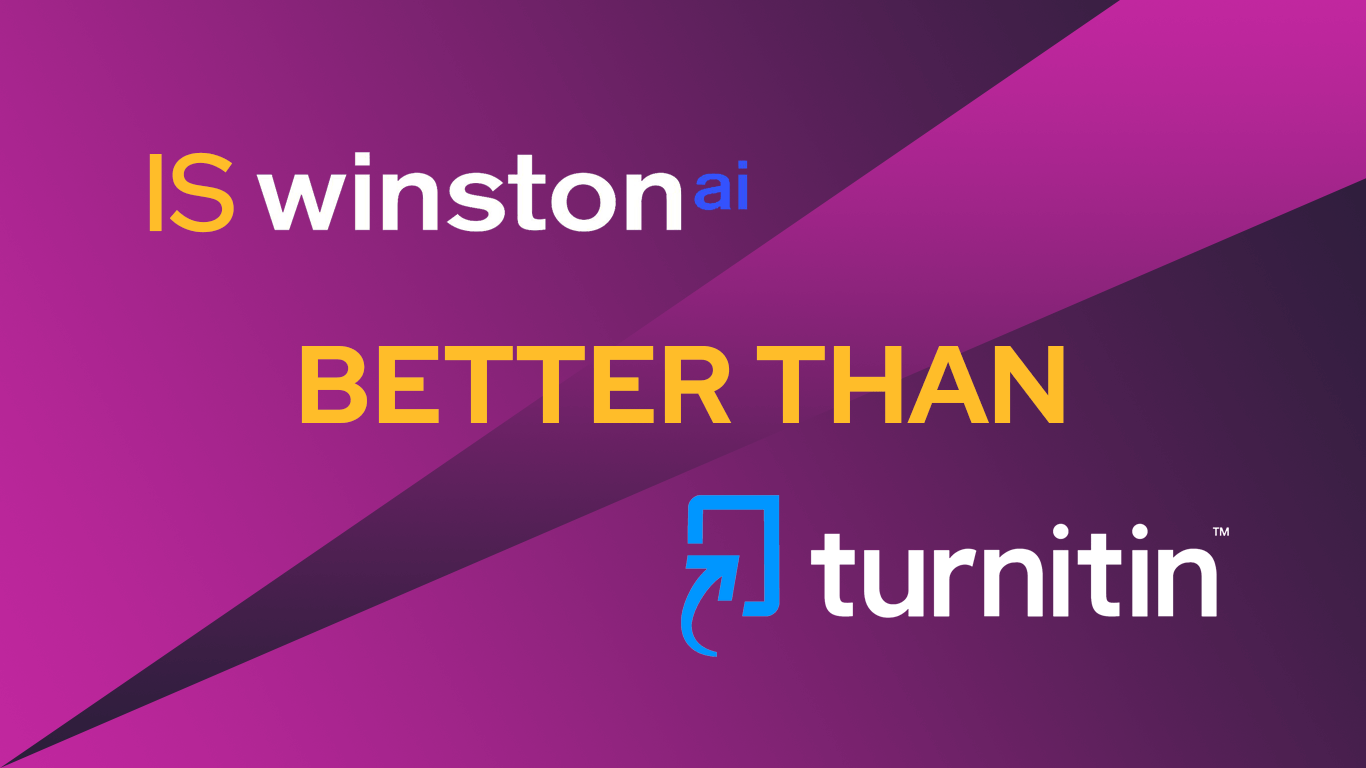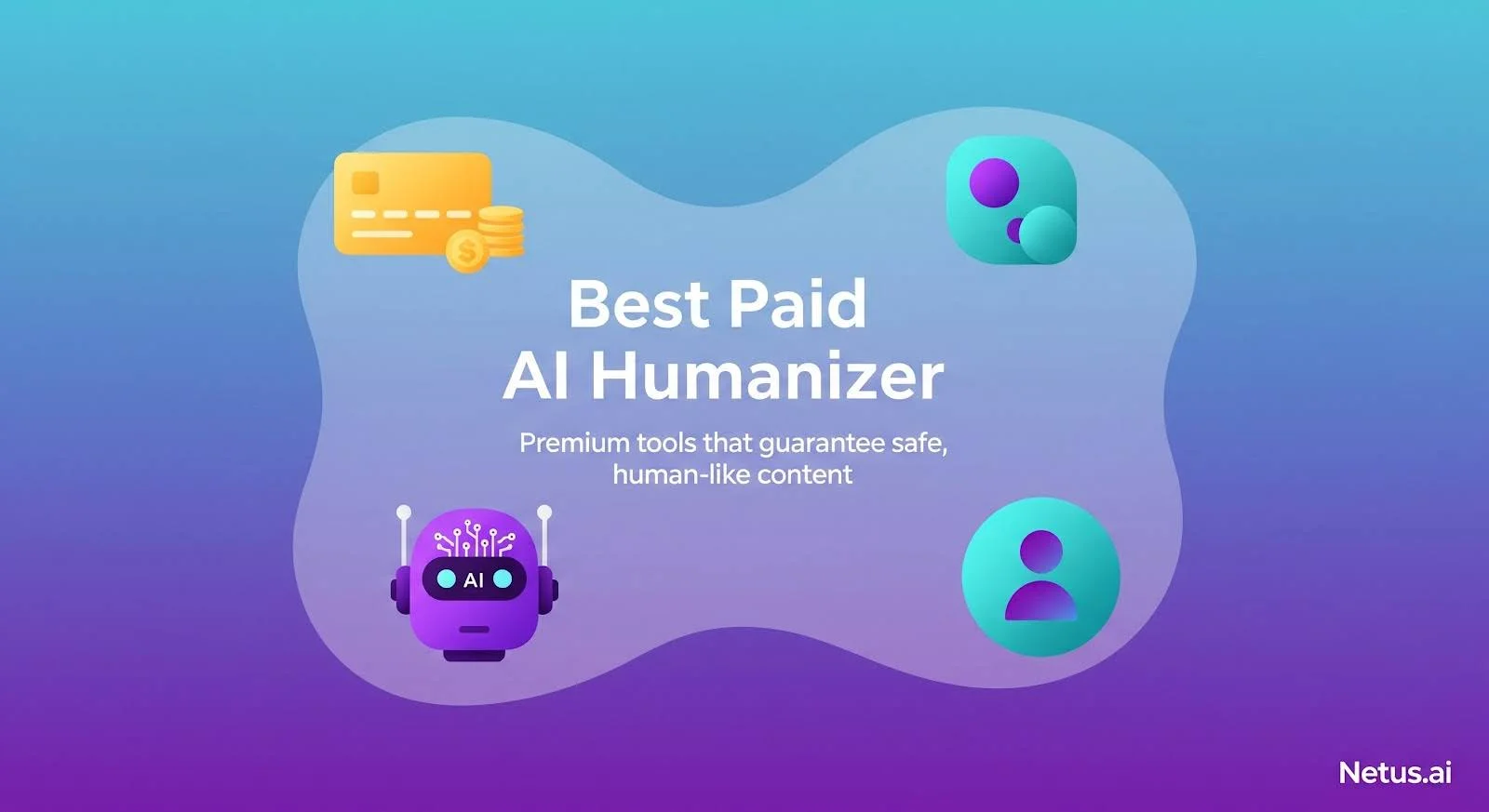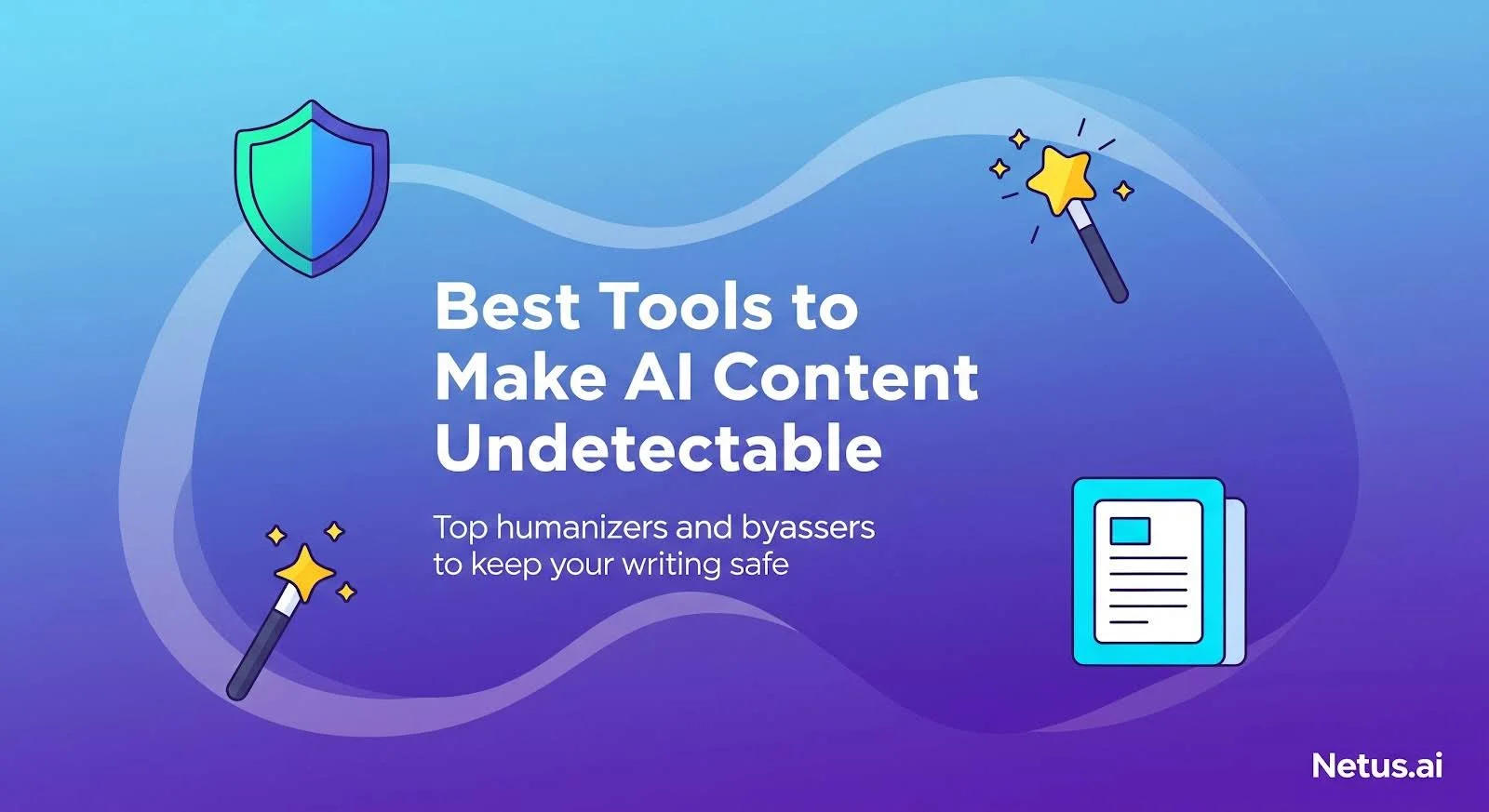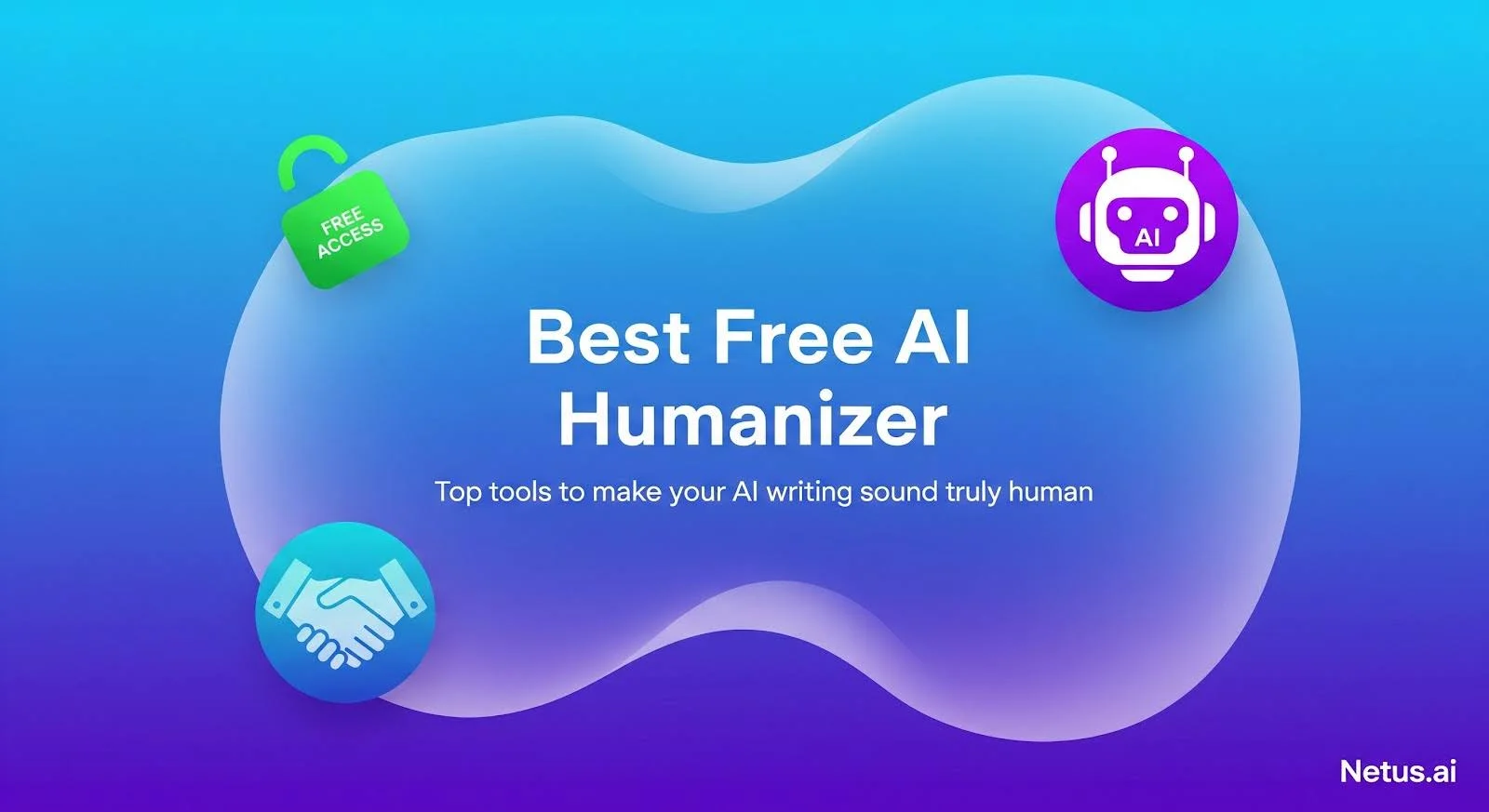With the increasing use of AI-assisted content generation, the need for reliable AI detection tools has surged, especially in educational and professional environments. Detecting AI-generated text accurately is crucial for maintaining integrity and originality. Winston AI and Turnitin are two widely used tools for detecting AI content, but each has strengths and drawbacks, particularly regarding false positives. This article provides an in-depth comparison of these tools, focusing on features, accuracy, usability, and cost. We’ll also discuss Netus AI, a popular AI paraphraser and ai detection bypasser, which helps users avoid false positives while maintaining the originality of human-written content.
Winston AI vs Turnitin Ai Detector
To thoroughly evaluate Winston AI and Turnitin, five main criteria were used as benchmarks:
- Human-written content detection: An ideal detector minimizes false positives, especially for human-written content, which may inadvertently mimic AI-generated patterns.
- AI-generated content identification: As AI detectors, these tools are designed to accurately identify text generated by AI models such as GPT-4.
- Paraphrased content detection: Detecting paraphrased AI content is challenging, and not all tools are equipped to handle the subtleties of reworded or modified text.
- Pricing and Accessibility: A useful AI detection tool must balance affordability with quality to ensure broad accessibility.
- User interface and usability: Ease of use is essential for effective functionality, especially for users who need quick and efficient AI detection.
Using these criteria, both Winston AI and Turnitin were evaluated, with Netus AI highlighted for its unique role in content generation.
Winston AI and Turnitin – Accuracy and Detection Capabilities
Detecting Human and AI Content
Winston AI is specifically geared towards AI detection and performs well when tasked with identifying purely AI-generated text. It reliably identifies over 99% of AI-created content but has a tendency to flag complex human writing or formally structured content as AI-generated. This issue with false positives has been a consistent drawback for users, as human content that aligns with certain “AI patterns” is often mislabeled, affecting content creators, students, and professionals who may inadvertently be flagged.
Similarly, Turnitin, known for its academic reputation in plagiarism detection, introduced AI detection capabilities in recent years. Although Turnitin’s AI detection performs reasonably well with simple AI-generated content, it also has a significant issue with false positives, frequently flagging sophisticated or technical human writing as AI-generated. For instance, academic texts with high structure or repetitive phrasing are often mistakenly flagged. Many users report frustrations with these false positives, as Turnitin’s algorithm still lacks the nuanced differentiation needed to reliably assess complex human content.
In both tools, false positives remain a challenge, as they often conflate human-created structure with AI generation, leading to misinterpretations that impact content credibility.
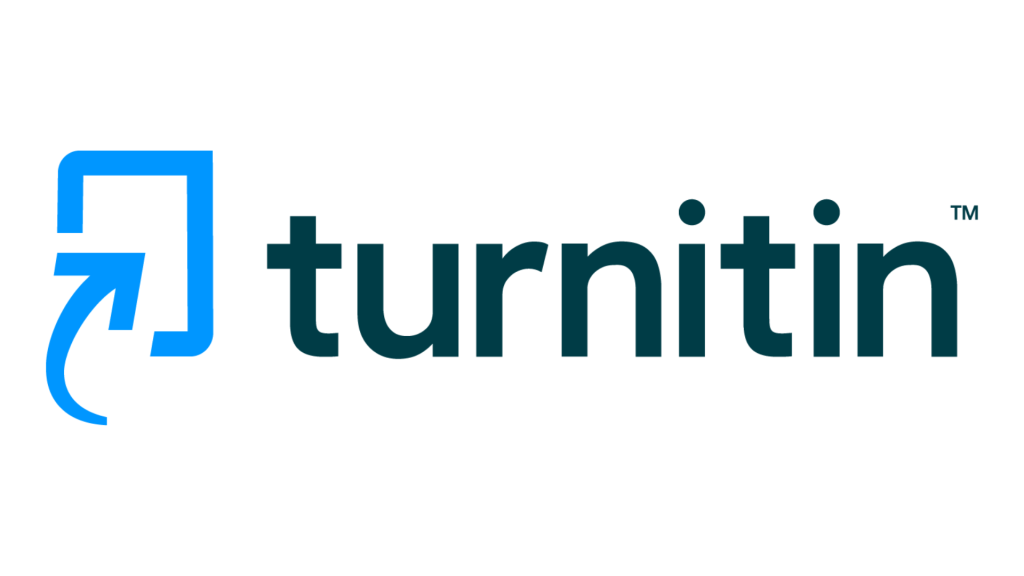
Pricing and Accessibility – Winston AI vs Turnitin
When it comes to pricing and accessibility, Winston AI provides a transparent and flexible structure, offering plans ranging from $12 to $49 per month. With multiple plan options, Winston is accessible to a wide range of users, from freelancers to small organizations. The free plan includes 2,000 words per scan, while paid plans offer higher word limits and faster support, making Winston a popular choice for individual content creators and small businesses.
Turnitin operates with a closed pricing model tailored primarily for academic institutions. The average cost is around $3 per student annually, but the lack of transparency and absence of individual licensing limits accessibility for independent users. For those outside the education sector, Turnitin’s institutional pricing and inaccessibility make it a challenging option, particularly as it lacks flexibility in catering to users who may not need large-scale academic support.
The difference in accessibility makes Winston AI a more favorable choice for independent users, while Turnitin remains focused on the academic market, leaving limited options for freelancers or professionals who need occasional AI detection.
Winston AI vs Turnitin – Usability and User Experience
User interface and experience play a significant role in the effectiveness of AI detection tools. Winston AI has a straightforward design with an intuitive interface, making it easy for users to scan documents, view results, and interpret flagged content. It also includes tools for analyzing readability, which is beneficial for users who may need quick insights into text quality. However, Winston’s frequent false positives can be frustrating for users who experience inconsistencies in the detection results, especially when AI-like language patterns in human content are misinterpreted.
Turnitin, by contrast, is designed to serve educational institutions and integrates extensively with learning management systems (LMS), adding complexity for those not within academic settings. For individual users, Turnitin’s array of features can feel overwhelming and may require a learning curve, especially since its primary function is institutional rather than personal use. Users unfamiliar with academic plagiarism detection may struggle with its interface, as the LMS integrations and academic terminology are primarily geared toward faculty and student use.
Netus AI: A Paraphrasing and Detection Bypass Solution
In light of the limitations of both Winston AI and Turnitin, Netus AI has emerged as a powerful AI paraphraser and detection bypasser, offering an alternative approach. Netus AI is a powerful rephrasing tool designed to help users create original content by rewording existing text, thus bypassing detection algorithms without compromising content integrity. By using advanced paraphrasing techniques, Netus AI effectively eliminates the risk of false positives, ensuring that human-generated content, or even AI-assisted text, can pass undetected by overly strict AI detectors like Winston and Turnitin.
This capability makes Netus AI a valuable tool for content creators, professionals, and students who wish to avoid the pitfalls of false positives commonly associated with Winston and Turnitin. With AI that subtly alters sentence structures, Netus AI helps users maintain originality without triggering detection algorithms, preserving the authenticity of human-like writing styles that detection tools frequently misinterpret.
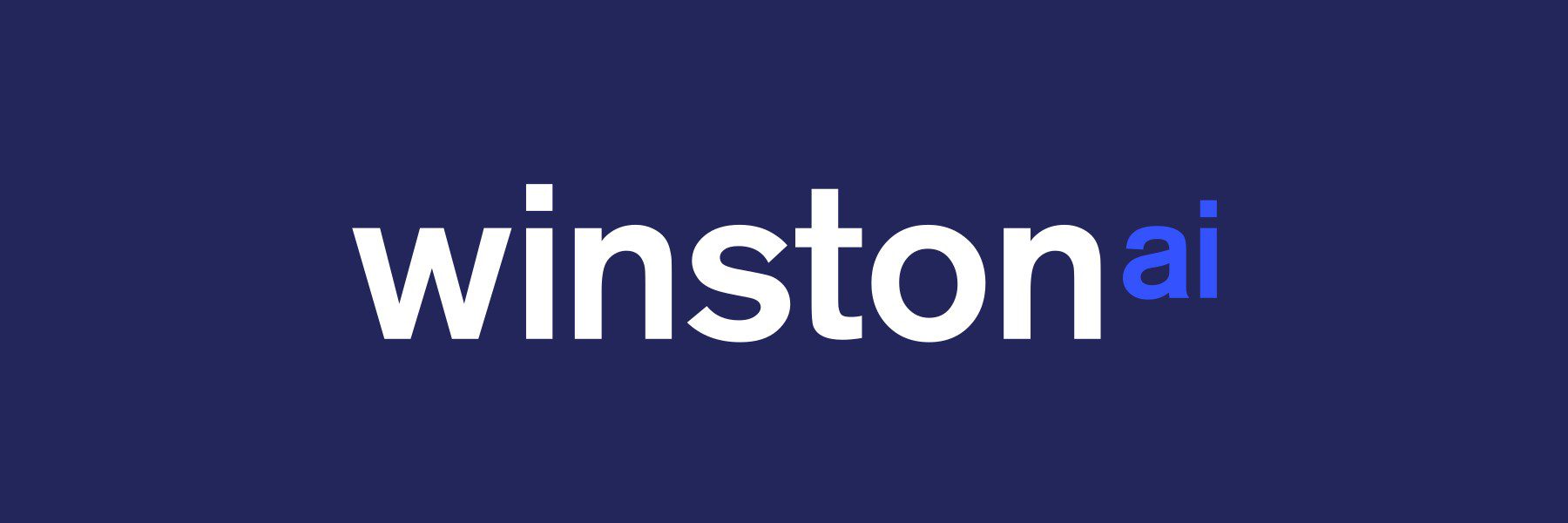
Overall Performance and Suitability: Winston AI, Turnitin, and Netus AI
Winston AI is an effective choice for those seeking a flexible and accessible detection tool, but its tendency to flag complex human content as AI can be problematic. While it performs well in identifying straightforward AI content, its algorithms struggle with nuanced human text and paraphrased content, which may require improvement for reliable, consistent results.
Turnitin, with its extensive academic support and plagiarism detection, remains the favored choice for educational institutions. However, its AI detection capabilities, while improving, are still prone to false positives, and its institutional focus restricts access for independent users or non-academic professionals. The complexity of its interface also limits usability for those unfamiliar with academic detection tools.
Netus AI provides a unique solution as a paraphrasing tool designed to circumvent false positives, allowing users to create or refine content that retains originality without triggering detection alerts. This can be especially useful for students or professionals who may face false-positive accusations when using AI-assisted content creation. By rephrasing text to avoid patterns typically associated with AI, Netus AI is a beneficial supplement to Winston and Turnitin, providing a workaround for users who experience detection issues.
Future Directions for AI Detection
The landscape of AI detection and paraphrasing is evolving, with user demand driving the need for greater accuracy and reliability. Educational institutions that rely on Turnitin may benefit from continued improvements in AI detection algorithms, especially to reduce false positives and better identify genuine AI-generated content. Turnitin’s development focus should be on refining its AI recognition capabilities to accommodate structured human writing and lower the incidence of misinterpretation.
For individual users and small organizations, Winston AI’s accessibility makes it an appealing choice, but improving its algorithm’s accuracy with nuanced human text will be essential to maintaining user trust. Reducing false positives and enhancing paraphrase detection can increase its appeal, particularly for freelancers and professionals seeking a versatile tool.
Netus AI highlights a different approach, offering a way to bypass detection software without compromising on quality or originality. Its role in enabling users to avoid false positives signals a growing demand for balanced AI tools that protect user content while maintaining authenticity. In the future, a blend of detection and paraphrasing technologies could emerge, combining accurate AI detection with adaptable paraphrasing solutions like Netus AI for a more comprehensive content solution.
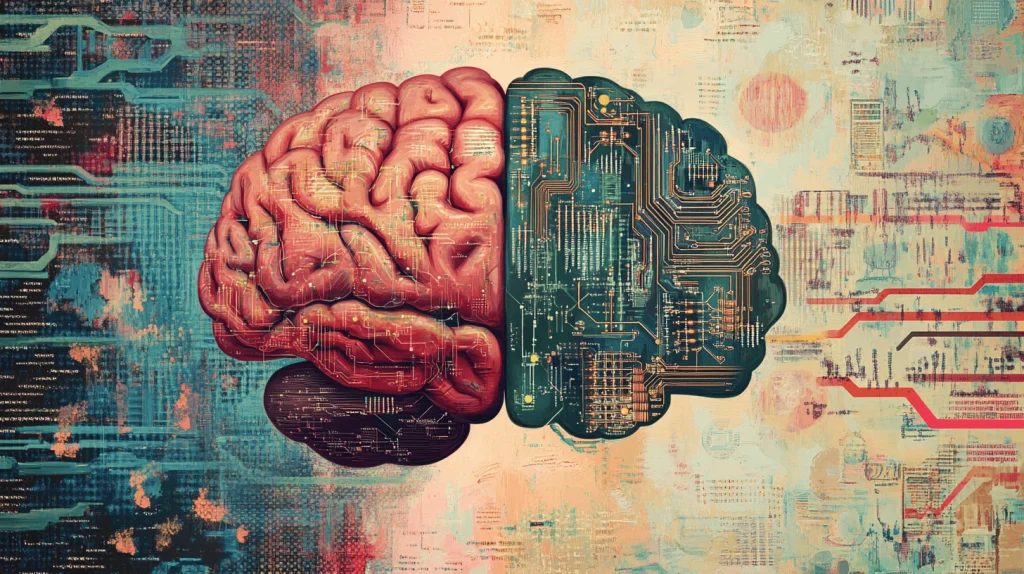
Is Winston AI Better Than Turnitin?
Choosing between Winston AI and Turnitin depends on the user’s specific needs. Winston AI is well-suited for individuals and small organizations seeking affordability and flexibility, but it remains prone to flagging authentic human content as AI. Turnitin, trusted by educational institutions for traditional plagiarism detection, is less accessible for independent users and needs improvement in AI-specific detection to reduce false positives for technical and structured human writing.
Netus AI, as a paraphrasing and detection bypass solution, provides an effective alternative for those looking to avoid detection issues. It is ideal for users who require originality without the risk of false positives, making it a helpful tool for students, professionals, and writers who need to sidestep detection flags in AI-driven and academic environments. Netus AI’s advanced rephrasing algorithms offer a balanced solution for those concerned about the restrictive false positives seen in Winston AI and Turnitin
Conclusion
The AI detection market continues to grow as users demand reliable, affordable, and accessible solutions. Winston AI, with its competitive pricing and intuitive design, serves as a viable choice for freelancers and professionals, despite its tendency toward false positives. Turnitin remains a cornerstone for educational institutions, though its AI detection capabilities are still evolving and may be cost-prohibitive for individual users.
Netus AI, as an advanced paraphrasing tool and detection bypasser, provides a unique solution for those looking to avoid the inaccuracies that plague current AI detectors. Together, these tools represent the diversity of options available, each with strengths tailored to specific needs. As AI detection technology evolves, users are encouraged to consider the benefits and limitations of each tool and choose one that best supports their unique content requirements.

